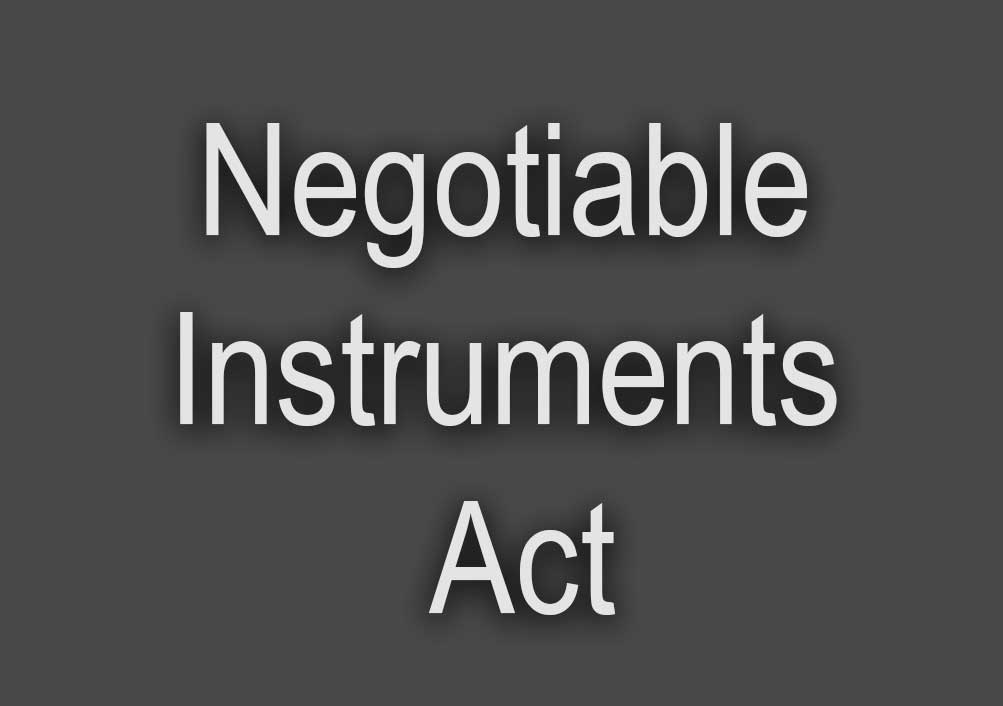In Criminal Revision Case No.595 of 2017- MAD HC- Negotiable Instruments Act empowers Court to award double amount of cheque as compensation in case accused is found guilty: Madras HC Justice G.Jayachandran [16-06-2022]

Read Order: M/s.Karrthekai Trading Company v. A.R.Sundar
Mansimran Kaur
Chennai, June 21, 2022: In a case pertaining to the Negotiable Instrument Act, the Madras High Court has opined that the Act provides for imposing fine to an extent of twice the cheque amount.
While examining the wordings of Section 138 of Negotiable Instrument Act, the Bench of Justice G. Jayachandran said, “…no doubt fine can be imposed twice the amount of the cheque. In exercise of power under Section 357 of Cr.P.C from the fine amount or separately Courts can order to pay compensation.” The Bench also added that when such power is exercised by the Appellate Court or Court of Revision, the said power shall be subject to the limitation prescribed under Section 386(b) (iii) of Cr.P.C. In other words, no enhancement of sentence would be permissible under law in the appeal preferred by the accused.
The subject matter of the revision petition was the cheque dated July 26, 2007 issued for Rs. 6, 00,000 by the revision petitioner, in favour of the respondent. On presentation, the cheque was returned on account of “insufficiency of fund”, hence after serving the statutory notice, a complaint was instituted under Section 138 of the Negotiable Instruments Act. The Trial Court found the accused guilty and sentenced him to undergo one year of simple imprisonment. Aggrieved by the same, the accused preferred an appeal before the IIIrd Additional District and Sessions Court.
The Appellate Court, confirmed the findings of the Trial Court and dismissed the appeal. Aggrieved by the findings of the Court below, the present revision petition was instituted on the ground that the Courts below failed to take note of the fact that the statutory notice was not served to the accused.
It was further claimed by the petitioner that the Court below failed to pay heed to the fact that the complainant in his chief examination stated that Rs. 600,000/- was borrowed by the revision petitioner on May 27, 2007 whereas, the cheque dated was much prior to the said date that was July 26, 2007. This sole fact vitiated the case of the complainant, claimed the petitioner.
The Court observed that the Negotiable Instruments Act authorizes the Court to award compensation twice the amount of cheque in case the accused is found guilty. When the trial Court had consciously not awarded compensation in lieu of fine and imposed fine of Rs.5, 000 only and one year of simple imprisonment then awarding compensation in the appeal filed by the accused would tantamount to enhancement of punishment, noted the Bench.
The Court noted that in the present case, the Appellate Court despite a bar to enhance the sentence, had imposed compensation of Rs.6, 00,000/- without altering the nature or the extent of the sentence. As per the Bench, this part of the appellate Court’s order was beyond its power and therefore perverse. On the facts of the case , the Court opined that in the instant matter the Trial Court consciously imposed a fine of Rs. 5, 000 and no compensation was ordered. In the appeal by the accused, no power was vested on the Appellate Court to enhance the sentence ordering the compensation in the absence of appeal by the complainant.
The compensation was not an independent component under Section 138 of Negotiable Instruments Act which is a special Act. It should be part of the fine amount and fine should be part of the sentence. Taking cue from the precedent of Justice V.R Krishna Iyer in Jolly George Varghese and other -vs- Bank of Cochin , the period of sentence was modified.
In view of the same, the criminal revision petition was partly allowed. The period of sentence imposed on the accused was modified to six months simple imprisonment with fine of Rs.5, 000 in default one month simple imprisonment.
Sign up for our weekly newsletter to stay up to date on our product, events featured blog, special offer and all of the exciting things that take place here at Legitquest.




Add a Comment